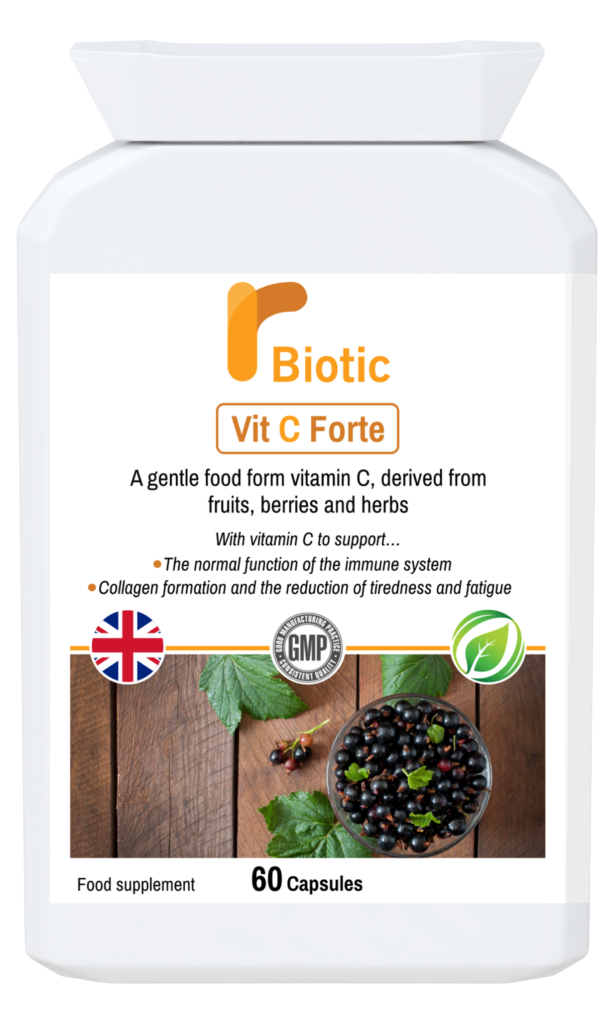Boosting Immunity: The Power of Vitamin C for Adults and Children

In today’s world, with the ongoing pandemic, it has become more important than ever to focus on our immunity and overall health. One of the most essential nutrients that play a vital role in our immune system is Vitamin C. In this blog post, we will explore the scientific evidence supporting the role of Vitamin C in boosting immunity for both adults and children.
The Role of Vitamin C in Immunity

Vitamin C, also known as ascorbic acid, is a water-soluble vitamin that is essential for various physiological functions in the body, including the immune system. Vitamin C helps in the formation of collagen, which is essential for the maintenance of healthy skin, tendons, ligaments, and cartilage. It also functions as an antioxidant, which helps in the prevention of damage caused by free radicals in the body.
Vitamin C plays a vital role in the immune system by stimulating the production and function of various immune cells such as lymphocytes, phagocytes, and natural killer cells. It also helps in the production of interferon, a protein that helps in the prevention of viral infections.
Scientific Evidence for Vitamin C and Immunity
- A systematic review and meta-analysis of 29 randomized controlled trials involving over 11,000 participants showed that Vitamin C supplementation helped in reducing the risk of pneumonia and other respiratory infections. The study found that Vitamin C supplementation reduced the risk of developing pneumonia by 80% (Hemila, 2017).
- A study published in the Journal of Manipulative and Physiological Therapeutics showed that Vitamin C supplementation helps in reducing the duration and severity of the common cold. The study found that individuals who took a high dose of Vitamin C (1-2 grams per day) experienced a 23% reduction in the duration of the common cold (Hemila & Chalker, 2013).
- Another study published in the Nutrients journal showed that Vitamin C plays a significant role in the prevention and treatment of respiratory infections. The study found that individuals who took Vitamin C supplements had a 52% reduction in the incidence of respiratory infections compared to individuals who did not take Vitamin C supplements (Hemila & Louhiala, 2017).
- A randomized controlled trial published in the European Journal of Clinical Nutrition showed that Vitamin C supplementation improved the immune response in elderly individuals. The study found that Vitamin C supplementation increased the number of lymphocytes, phagocytes, and natural killer cells, which are all important components of the immune system (Maggini et al., 2012).
Overall, these studies provide strong evidence for the role of Vitamin C in boosting immunity and preventing various diseases. However, it is important to note that Vitamin C should not be used as a substitute for medical treatment and that a healthy diet and lifestyle are essential for maintaining optimal immune function.
Vitamin C for Adults

For adults, the recommended daily intake of Vitamin C is 75-90 milligrams per day. However, some individuals, such as smokers, those with high-stress lifestyles, and those recovering from illnesses or surgeries may need higher doses.
The best food sources of Vitamin C include citrus fruits such as oranges and grapefruits, strawberries, kiwifruit, red and green peppers, broccoli, and Brussels sprouts. Vitamin C supplements are also available in various forms such as tablets, capsules, and powders.
It is essential to choose a high-quality Vitamin C supplement from a reputable brand and follow the recommended dosage to avoid any negative side effects.
Vitamin C for Children

Children also need Vitamin C to support their immune system and overall health. The recommended daily intake of Vitamin C for children varies depending on their age and gender.
Children can get Vitamin C from various food sources, including citrus fruits, strawberries, kiwifruit, tomatoes, and peppers. However, if your child is a picky eater or has a restricted diet, they may not be getting enough Vitamin C.
In this case, you may consider giving them a Vitamin C supplement. It is important to choose a child-friendly option that is easy to swallow and has a pleasant taste. Follow the recommended dosage for your child’s age and weight to avoid any negative side effects.
Vitamin C Supplements

Vitamin C is an essential nutrient that is required for various physiological functions in the body, including the immune system. While Vitamin C can be obtained from a variety of food sources such as citrus fruits, strawberries, kiwifruit, and peppers, some individuals may require additional supplementation.
Vitamin C supplements are available in various forms such as tablets, capsules, and powders. These supplements can provide an easy and convenient way to meet your daily Vitamin C requirements. However, it is important to choose a high-quality Vitamin C supplement from a reputable brand.
When choosing a Vitamin C supplement, consider the following:
- Quality: Choose a high-quality supplement from a reputable brand that follows good manufacturing practices.
- Dosage: Follow the recommended dosage on the label. Taking too much Vitamin C can cause negative side effects such as diarrhea, stomach cramps, and nausea.
- Form: Choose a form that is easy for you to take. For example, if you have difficulty swallowing pills, a powdered form of Vitamin C may be more suitable.
It is important to note that Vitamin C supplements should not be used as a substitute for a healthy diet. While supplements can provide additional nutrients, it is best to obtain Vitamin C and other essential nutrients from a variety of whole foods.
In conclusion, while Vitamin C supplements can be a convenient way to meet your daily Vitamin C requirements, it is important to choose a high-quality supplement and follow the recommended dosage. A healthy diet rich in Vitamin C and other essential nutrients is essential for optimal immune function and overall health.
Conclusion

In conclusion, Vitamin C is a vital nutrient that plays a crucial role in boosting immunity and overall health for both adults and children. Incorporating Vitamin C-rich foods into your diet or taking a high-quality Vitamin C supplement


